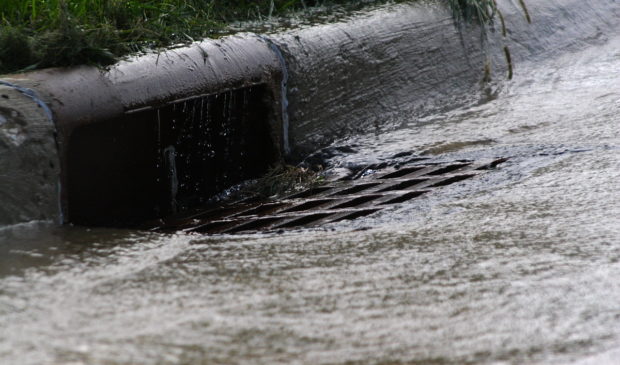Environmental Commission recommends CodeNEXT drainage regulations with review
Monday, April 9, 2018 by
Jessi Devenyns How many complaints on an issue are sufficient to warrant a change in city code? This question cropped up continually at the April 4 meeting of the Environmental Commission as commissioners worked to pass a resolution regarding CodeNEXT drainage regulations.
According to several of the commissioners, Austin residents have approached them repeatedly to express their concerns with drainage and flooding issues on neighboring residential properties. In response to these complaints, Chair Marisa Perales drafted a resolution that stated that for residential redevelopment projects, “City staff will conduct a substantive review of the information submitted to the Department and … conduct an inspection of the development project to ensure compliance with the drainage regulations.”
Perales explained that this is simply reinforcing the current standard. “The standard remains the same,” she said. “You can’t flood your neighbor.”
However, conducting these reviews will be costly. According to Commissioner Hank Smith, to be in compliance, each redevelopment project would require about $5,000 in review and permits, which, he said, adds up to “a $25 million hit that does nothing.” He based his numbers on calculations he had done prior to the meeting.
He did note that, as an engineer who makes his living from reviews, “Part of me says I should be all over this.”
Instead of a blanket regulation for residential drainage review, Smith suggested an applied review process in areas that already have known troubles with flooding. “What I suggest is we look at areas that have localized flood problems,” he said.
Commissioner Wendy Gordon agreed with the observation saying, “The one-size-fits-all approach does have the potential to make this disproportionally expensive.”
Smith also noted that having an engineer sign off on compliance has the potential to shift the liability for code violations.
Chuck Lesniak, the head of the city’s Watershed Protection Department, noted that with engineer sign-off you have a professional guarantee of any construction’s adherence to drainage standards. If later it proves that a project violated code, having the engineer’s certification allows the city to seek recompense through liability insurance. “It gives a legal avenue for malpractice that we don’t have today,” he said.
Furthermore, although the standards are currently on the books, they can be difficult to enforce because the city has no jurisdiction over what homeowners change on their properties after a permitted project is finished. If they reorient the downspout of a gutter, the city cannot administer a code violation.
“The day after the city packs up and goes home, the homeowner can significantly rearrange the yard,” noted Gordon. “You may head off some problems, but you’re not going to solve them all.”
Despite this resolution recommending that the review process be applicable to all residential properties, the commission concluded that there are limits. If homeowners are adding attached additions of 400 feet and smaller – the median size of additions according to Watershed Protection Planning Division Manager Matt Hollon – they would be exempt from review.
The commission passed the overall recommendation for CodeNEXT drainage regulations, along with a recommendation to include a city-stamped review process to ensure compliance. Smith and Commissioner Andrew Creel voted in opposition, and Commissioner Peggy Maceo abstained.
Curious about how we got here? Check out the Austin Monitor’s CodeNEXT Timeline.
Photo by Robert Lawton [CC BY-SA 2.5], from Wikimedia Commons.
The Austin Monitor’s work is made possible by donations from the community. Though our reporting covers donors from time to time, we are careful to keep business and editorial efforts separate while maintaining transparency. A complete list of donors is available here, and our code of ethics is explained here.
You're a community leader
And we’re honored you look to us for serious, in-depth news. You know a strong community needs local and dedicated watchdog reporting. We’re here for you and that won’t change. Now will you take the powerful next step and support our nonprofit news organization?








